The Taliban will implement a 10-day ceasefire with US troops, a reduction in violence with Afghan forces and discussions with Afghan government officials if it reaches a deal with US negotiators in talks in Doha, two sources have said.
If an agreement is sealed, it could revive hopes for a long-term solution to the conflict in Afghanistan.
Taliban and US negotiators met on Wednesday and Thursday to discuss the signing of a peace deal, according to a spokesman for the Taliban office in Qatar. The talks were “useful” and would continue for a few days, the spokesman, Suhail Shaheen, said on Twitter early on Friday.
Download the new Independent Premium app
Sharing the full story, not just the headlines
Donald Trump had called off the stop-start talks to end the 18-year war in September after a US soldier was killed in an attack by the militant group.
They resumed but were interrupted again in December after the Taliban launched a suicide attack on a US base outside Kabul killing two civilians.
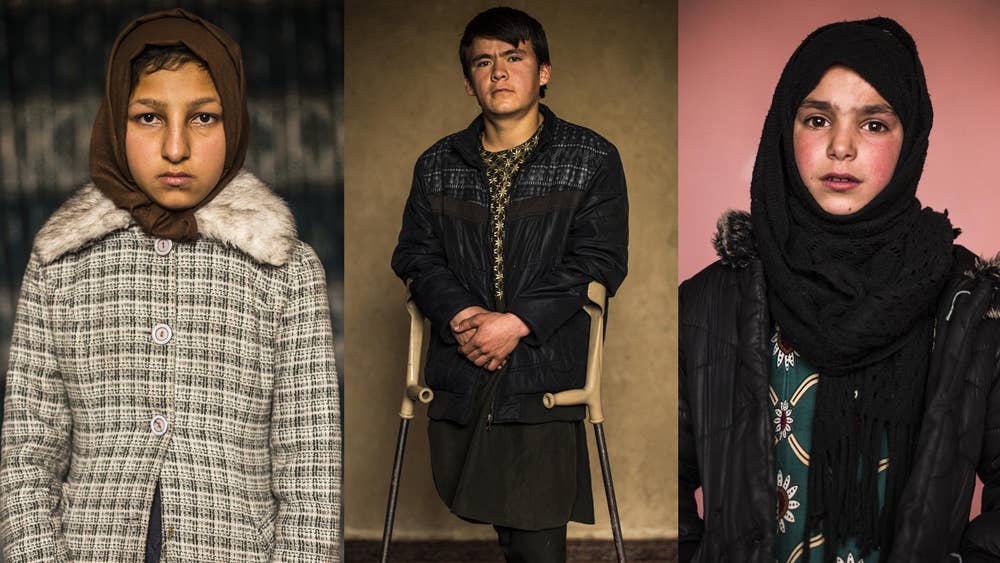

1/20
Andrew Quilty/Save the Children
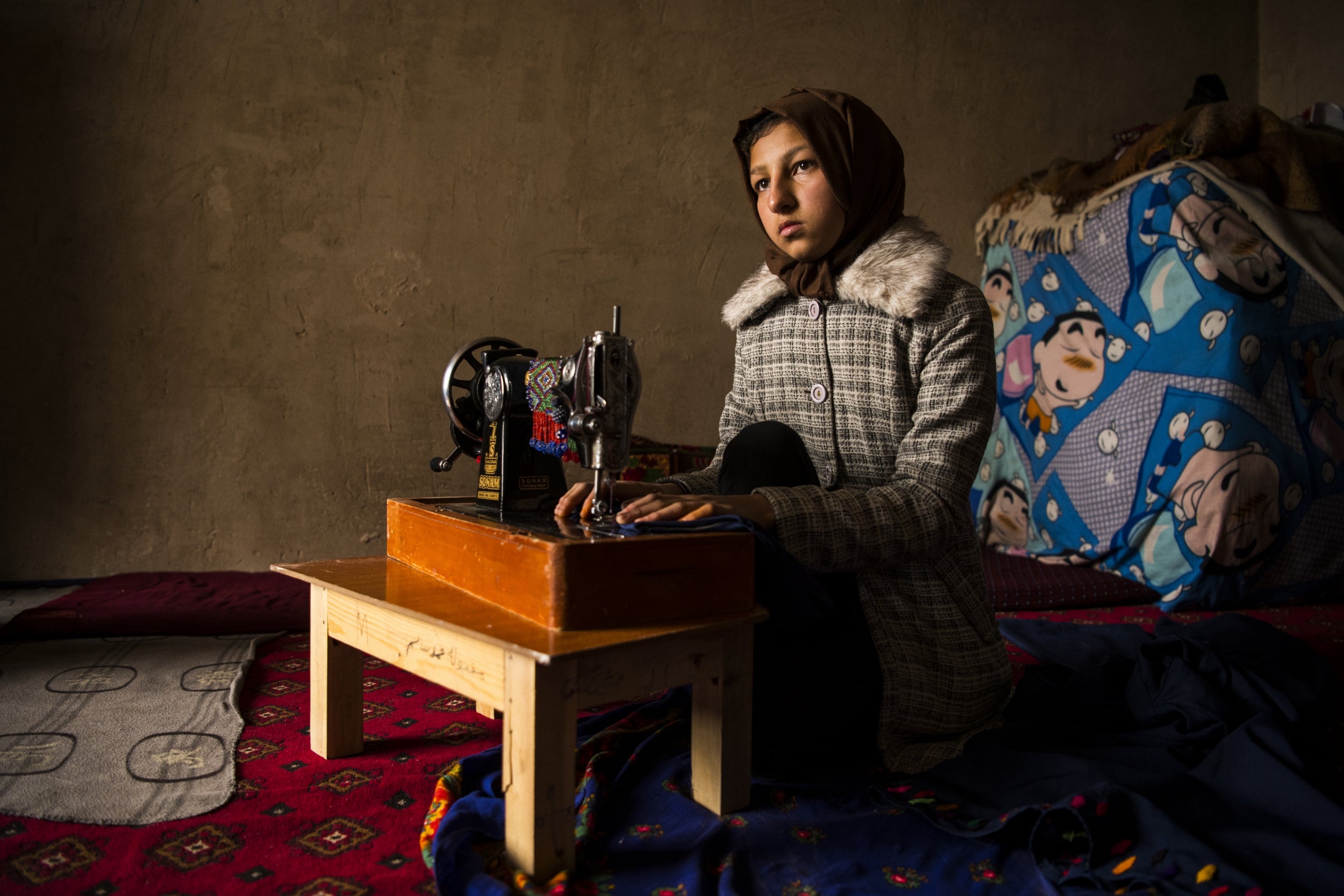
2/20 Nooria*, 15 in the home her family has lived in for the past two years in Mazar-i Sharif
She was forced to flee her home with her family after their town was attacked by armed groups. Nooria describes a rocket hitting her neighbours home killing many inside. They fled on foot with just the clothes on their backs and she now lives in Mazari Shariff where Save the Children have enrolled her in school and provide vocational training
Andrew Quilty/Save the Children
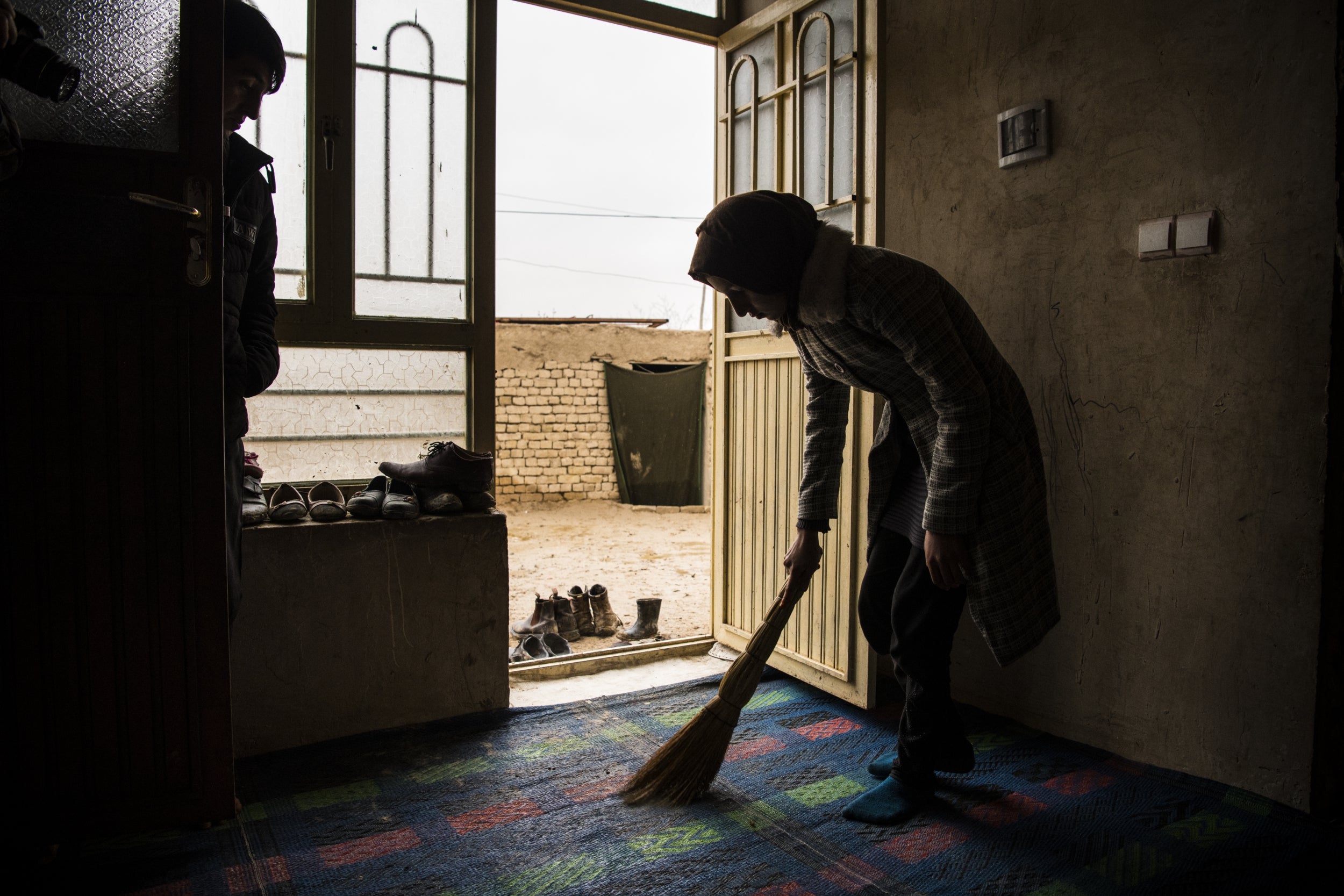
3/20
Nooria* hopes for a future with no war; “When they attacked our village, the rocket hit our neighbour’s house and they all died. Our house then caught fire and we ran away. My friends who I used to play with – I still don’t know if they are alive or if they are dead.”
Andrew Quilty/Save the Children
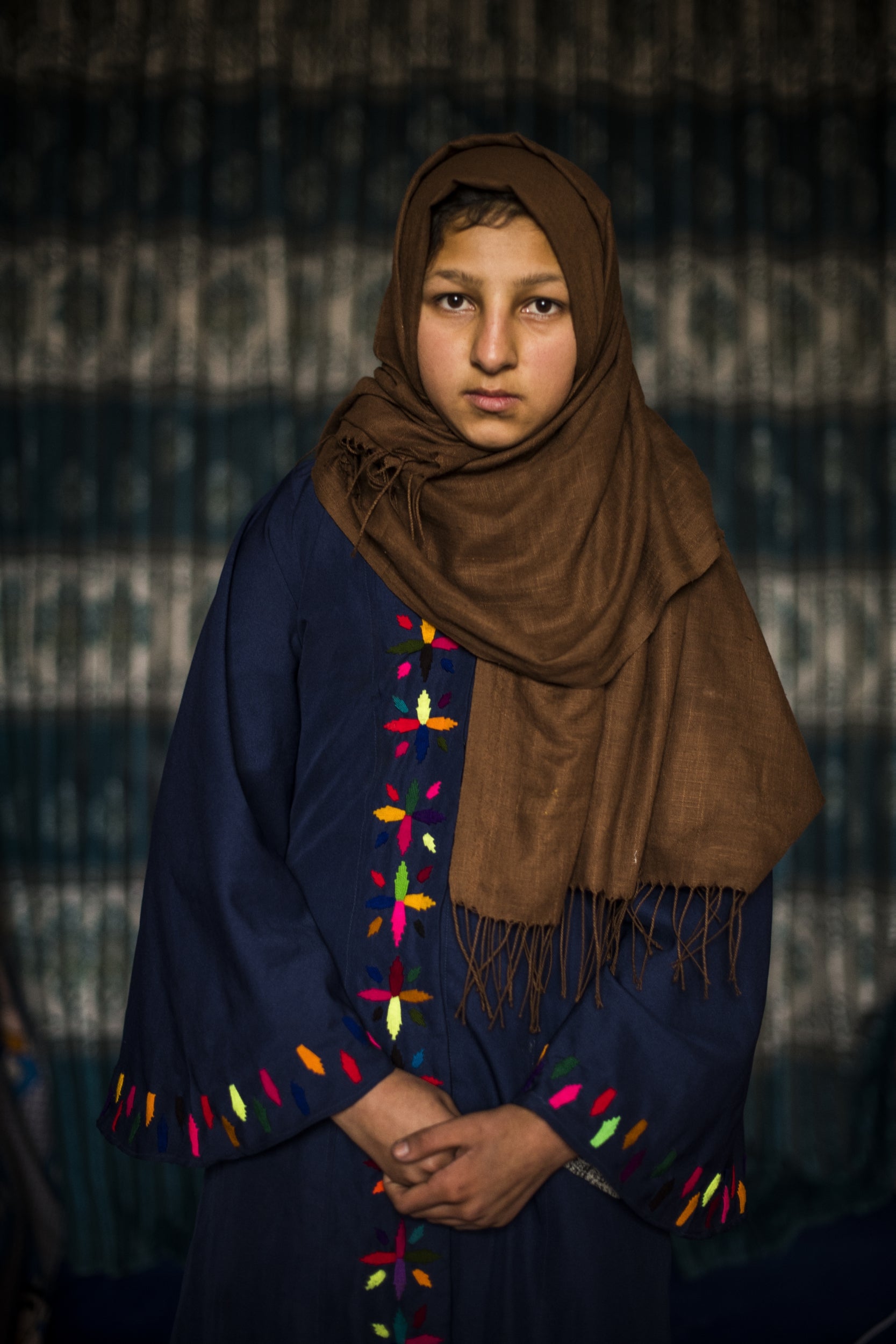
4/20
“I’m hoping for a better future, to learn, to support my family and to get them out of this difficult life. And I’m hoping for a future where there is no war.”
Andrew Quilty/Save the Children
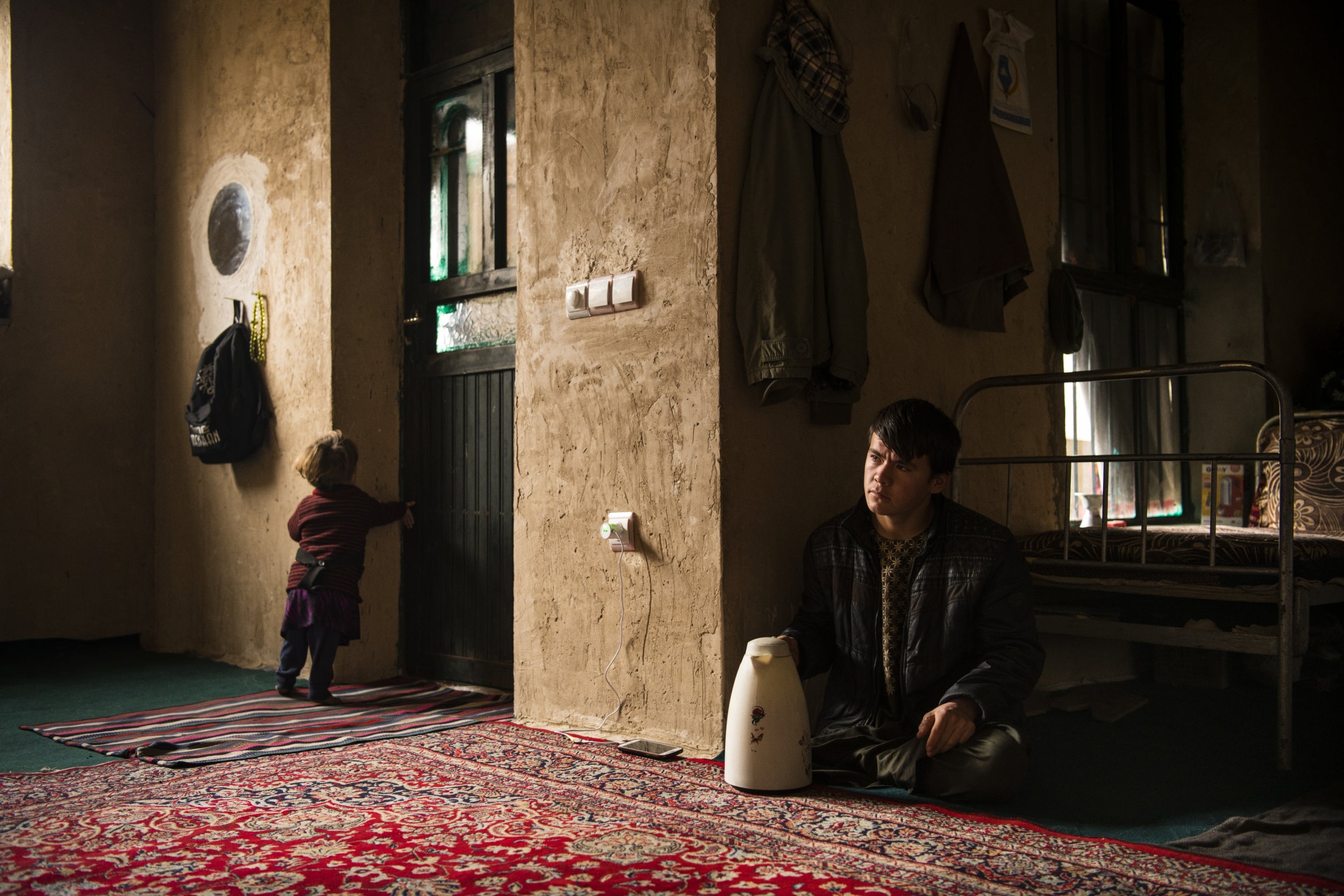
5/20 Naveed*, 16 at his family home in Mazar-i Sharif
Naveed lost his leg when he stepped on a mine aged just 8-years-old. He was herding the family’s sheep in the mountains near their home when he triggered a landmine
Andrew Quilty/Save the Children
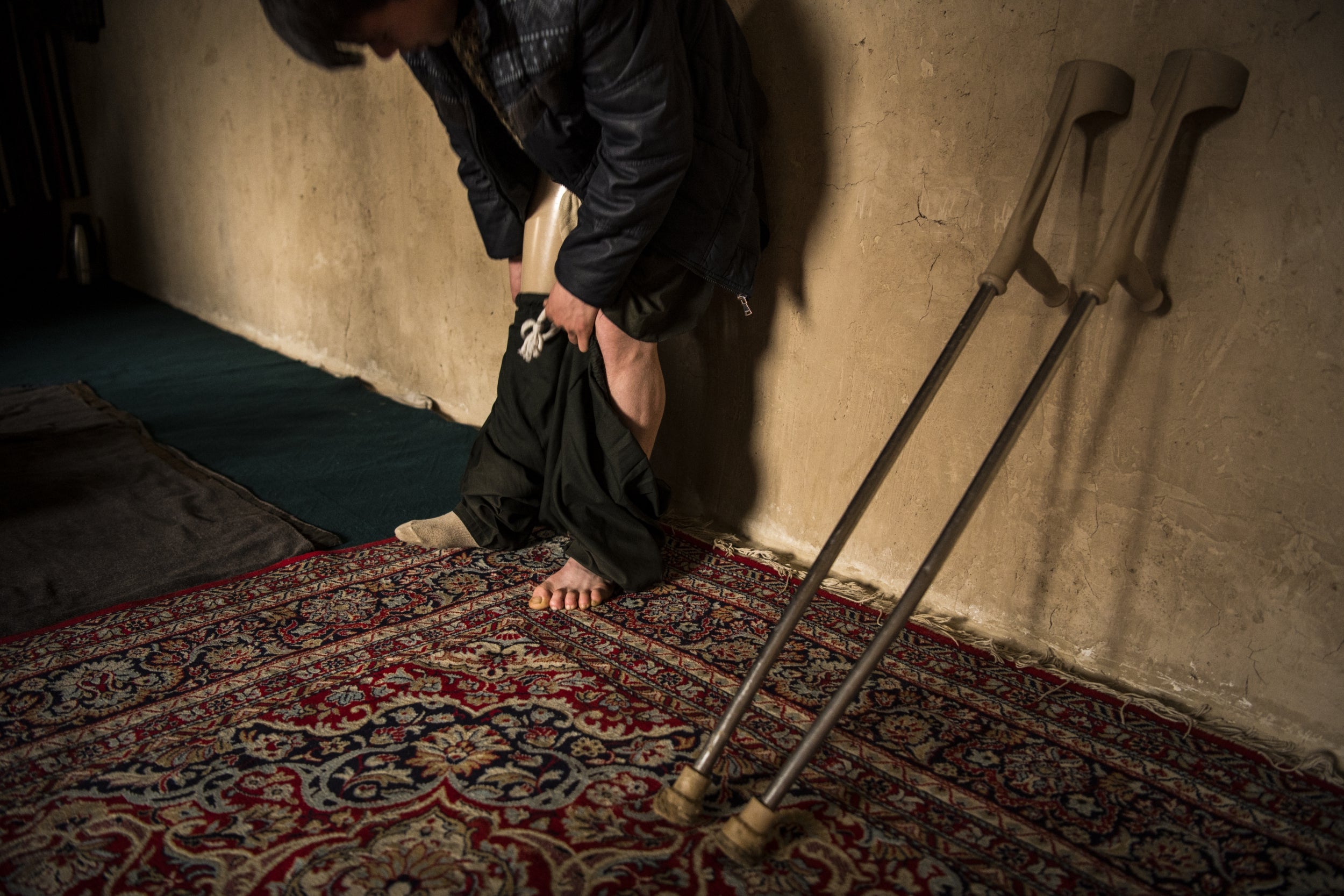
6/20
After months of medical treatment his right leg was eventually amputated. He received physiotherapy and a prosthetic leg from the International Committee for the Red Cross in Mazar
Andrew Quilty/Save the Children
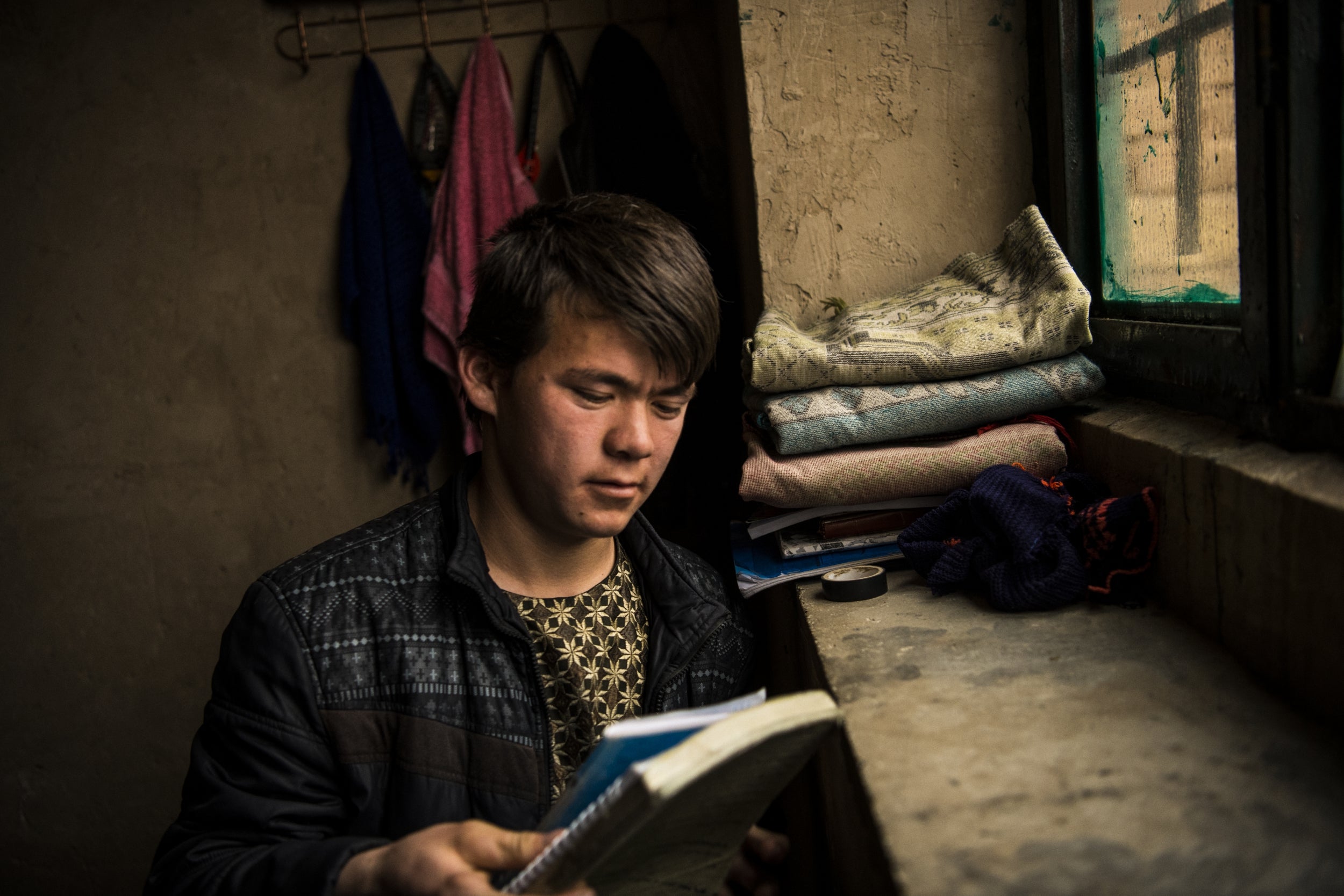
7/20
Now enrolled in school, Naveed is being given vocational training by Save the Children. “For around a year I felt and dreamt that I still had my leg. But when I woke up and saw, there was no leg. Sometimes I’d feel with my hand to check and find it wasn’t there.”
Andrew Quilty/Save the Children
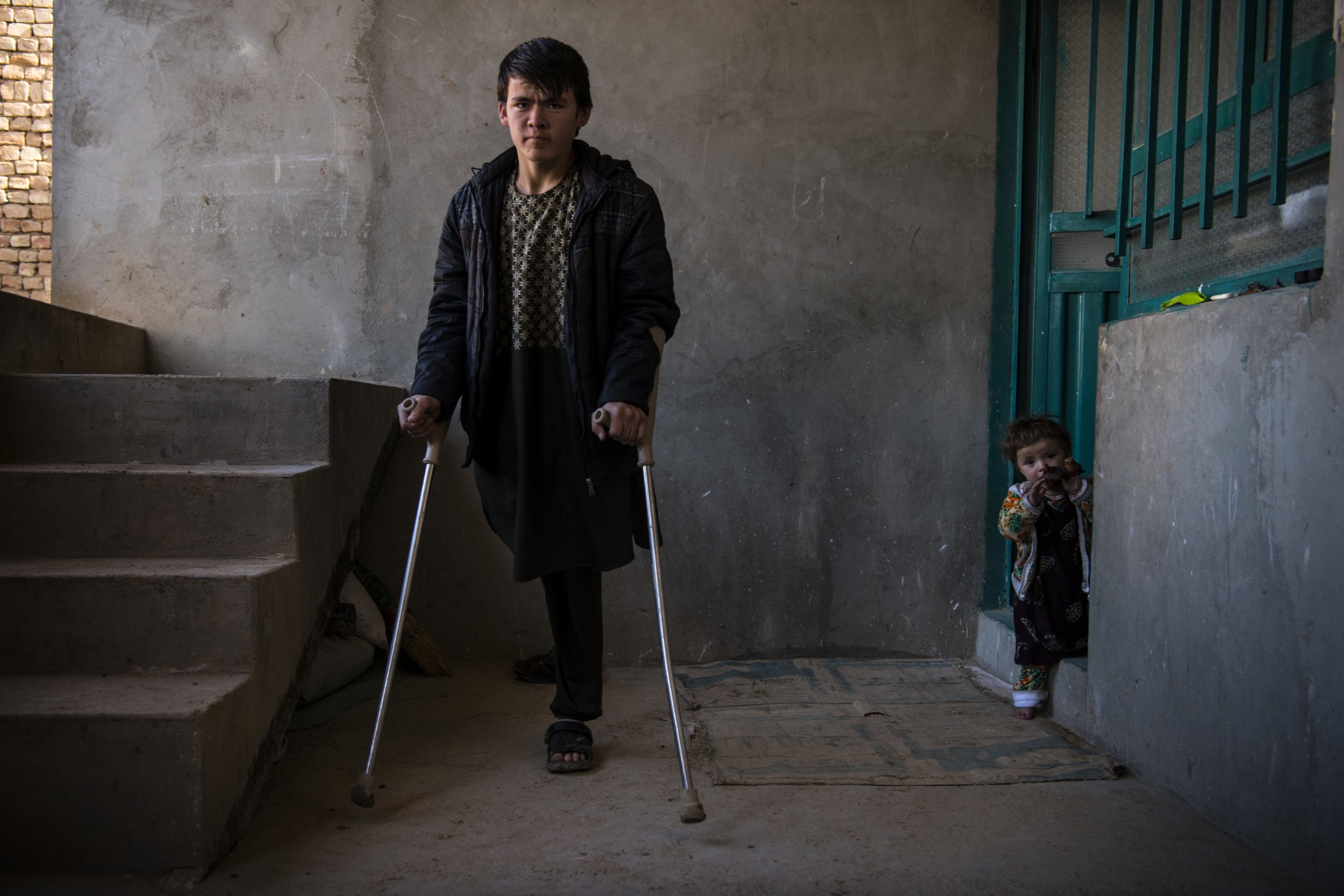
8/20
“If someone has loses their leg, it does not mean that they have lost their mind.”
Andrew Quilty/Save the Children
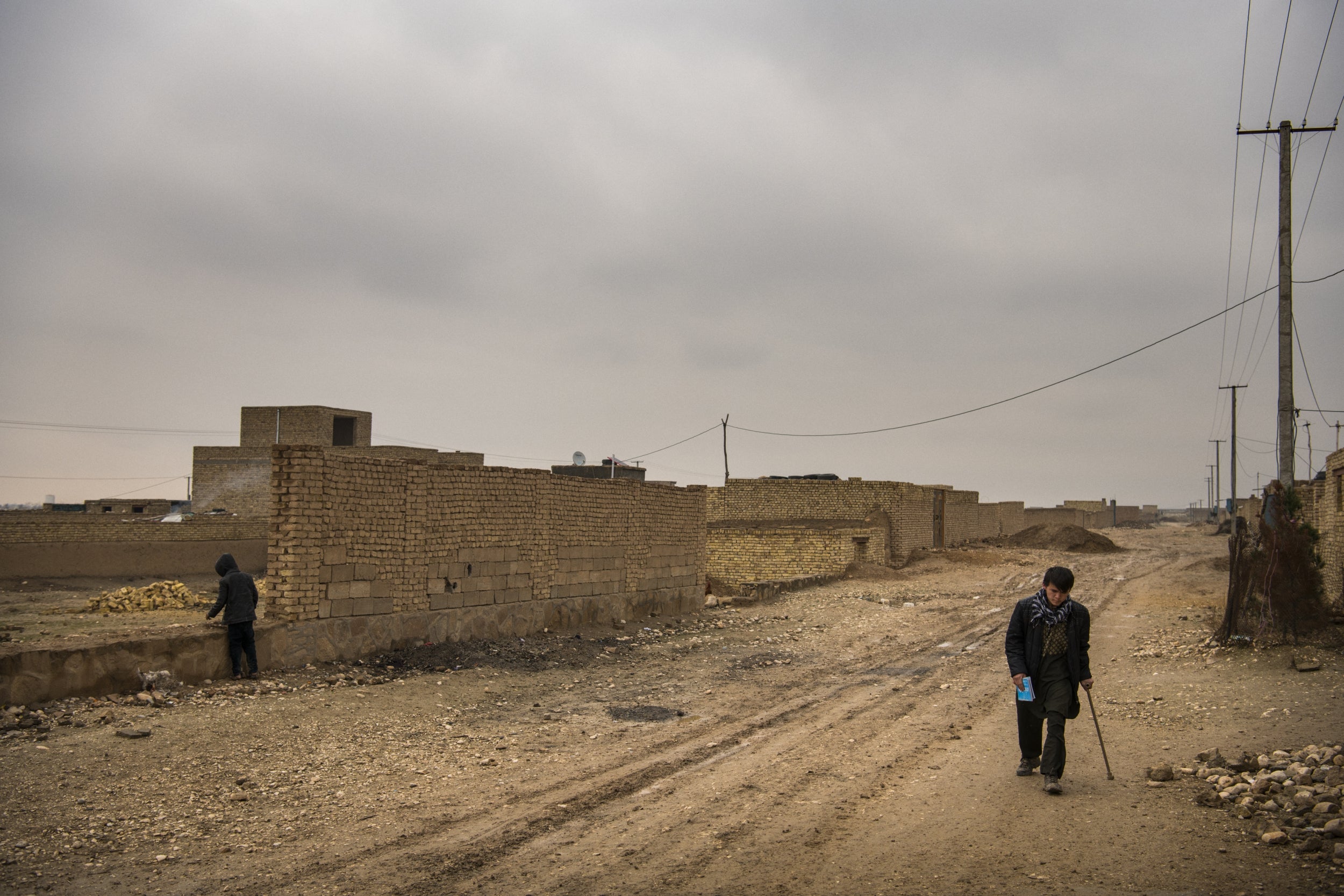
9/20
“With the help of our minds we can continue to study, learn, and work to make the future of our families brighter.”
Andrew Quilty/Save the Children
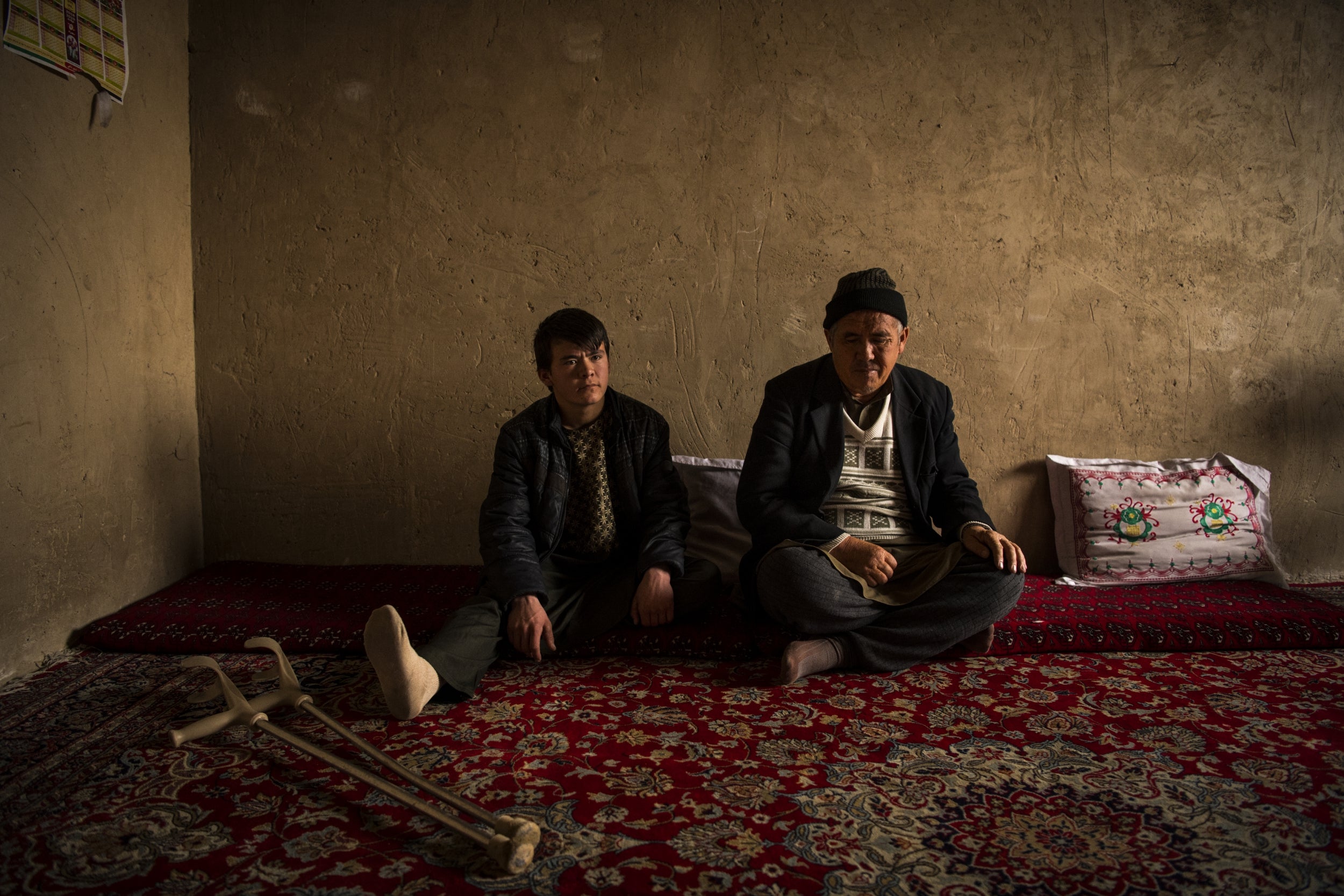
10/20 Naveed and Mahboob*, 55 (Naveed’s father)
Several years ago Neveed’s father, Mahboob, was brutally beaten with rifle butts by armed groups after, he says, he failed to provide food for them while they were stationed in the family’s village. He suffered brain damage which affected the right side of his body, speech and his brain function
Andrew Quilty/Save the Children
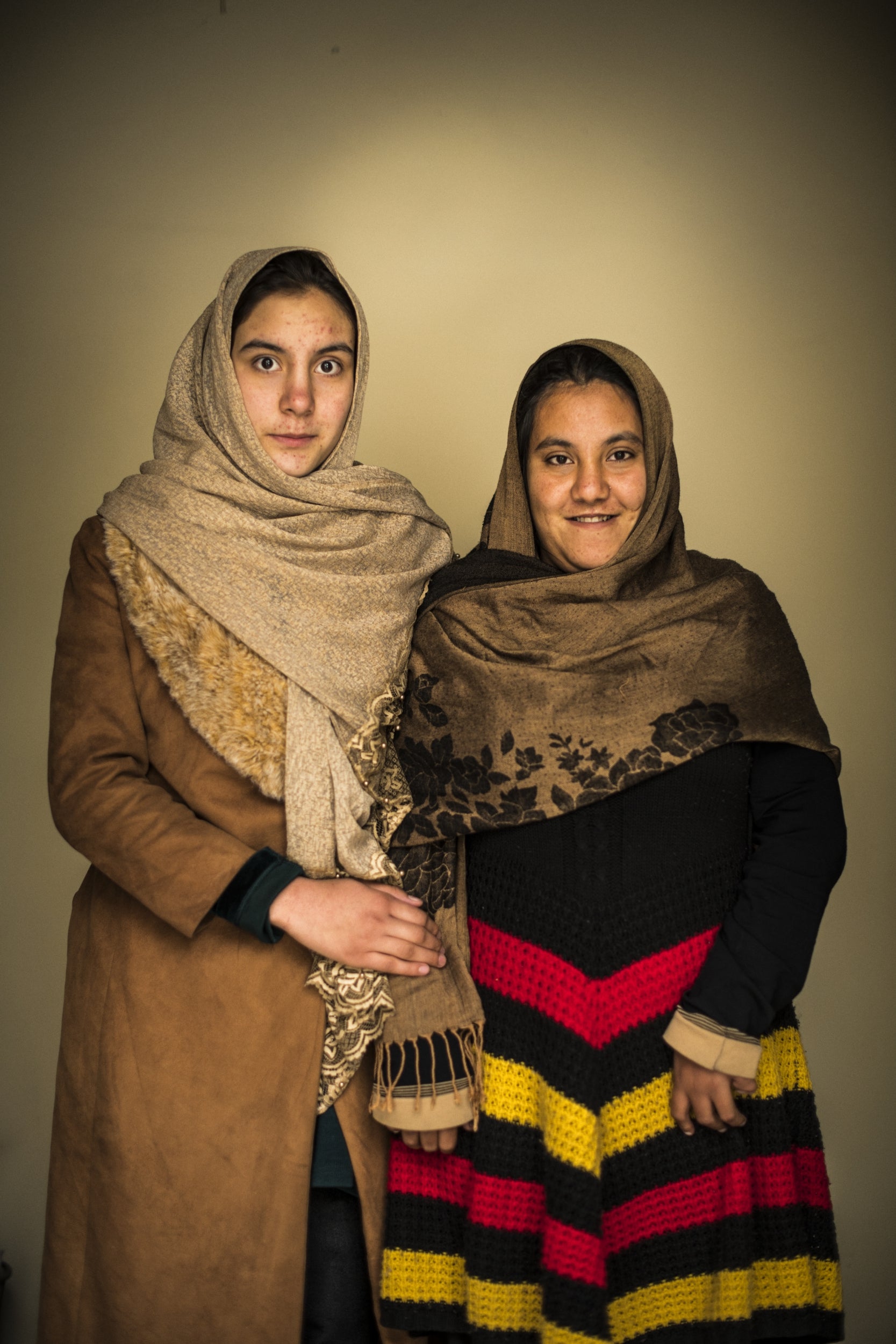
11/20 Habiba*, 14, and Arezo*, 15 in a village outside Kabul
Habiba and Arezo were injured with their mother three years ago in a suicide bombing in Kabul. Arezo is still traumatised from what she saw and has become completely withdrawn
Andrew Quilty/Save the Children
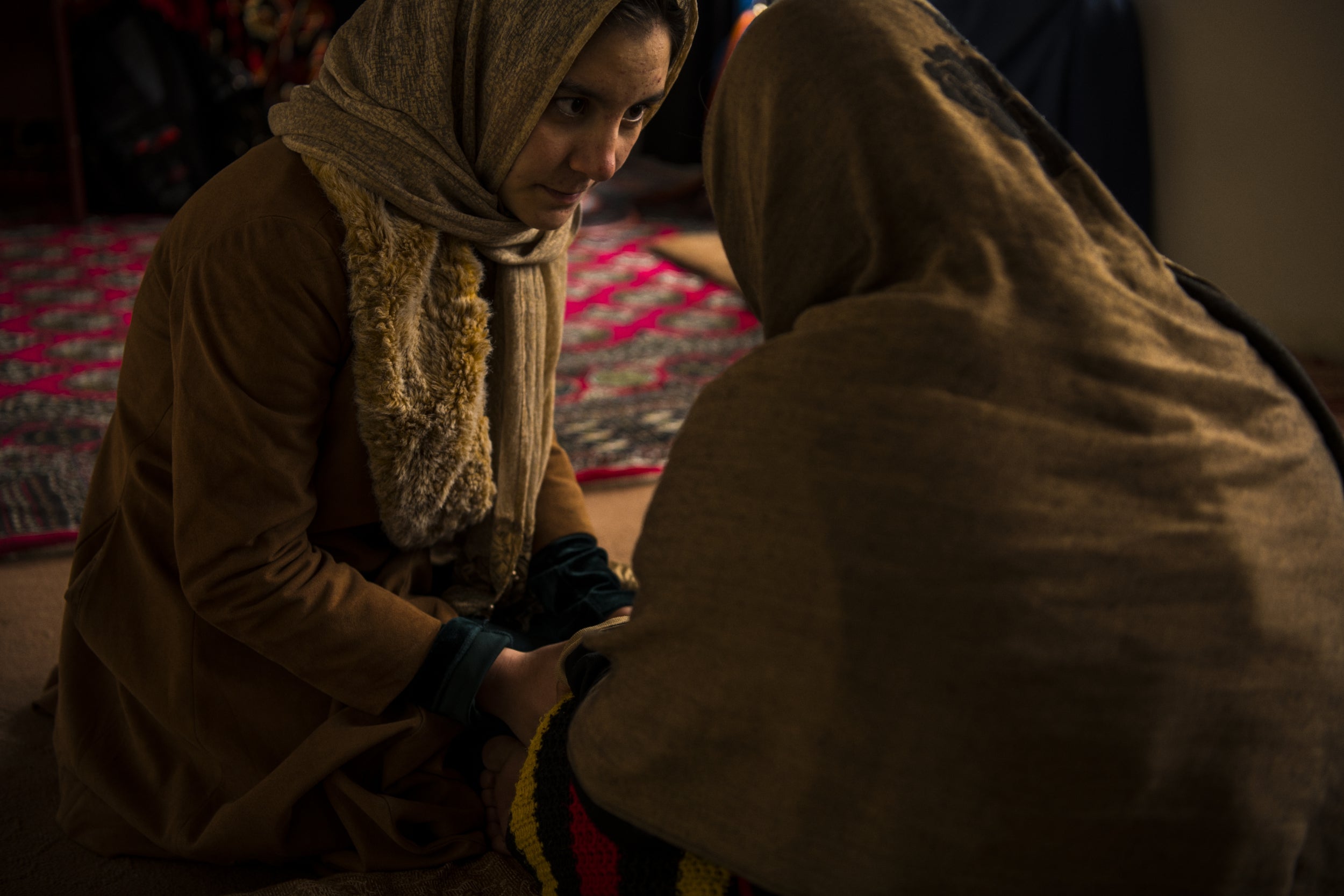
12/20
Arezo’s younger sister Habiba cares for her, takes her to lessons and anywhere she wants to go. They are both in school through Save the Children’s ‘Steps towards Afghan girls’ education success’ (STAGES) programme, which helps the most marginalised girls get access to education, stay in school and learn.
Andrew Quilty/Save the Children
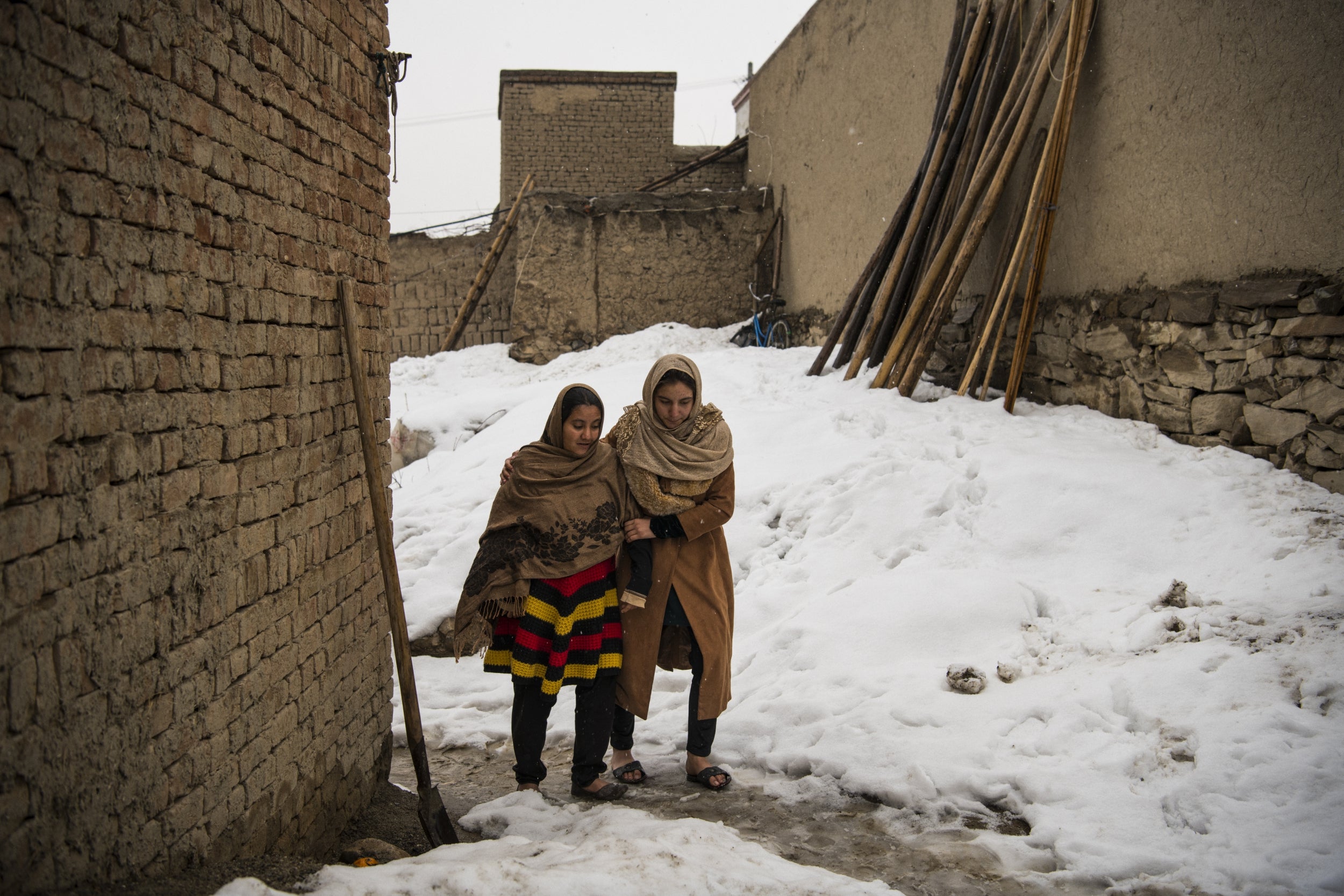
13/20
Habiba says: “When I woke up and I opened my eyes I saw lots of bodies and I thought I was not alive any more. It was horrible. I’ll never forget that. Whenever there is a big sound she gets scared because she was traumatised by the sound she heard during the attack. I love my sister, and I help her with her lessons, I take her anywhere.”
Andrew Quilty/Save the Children
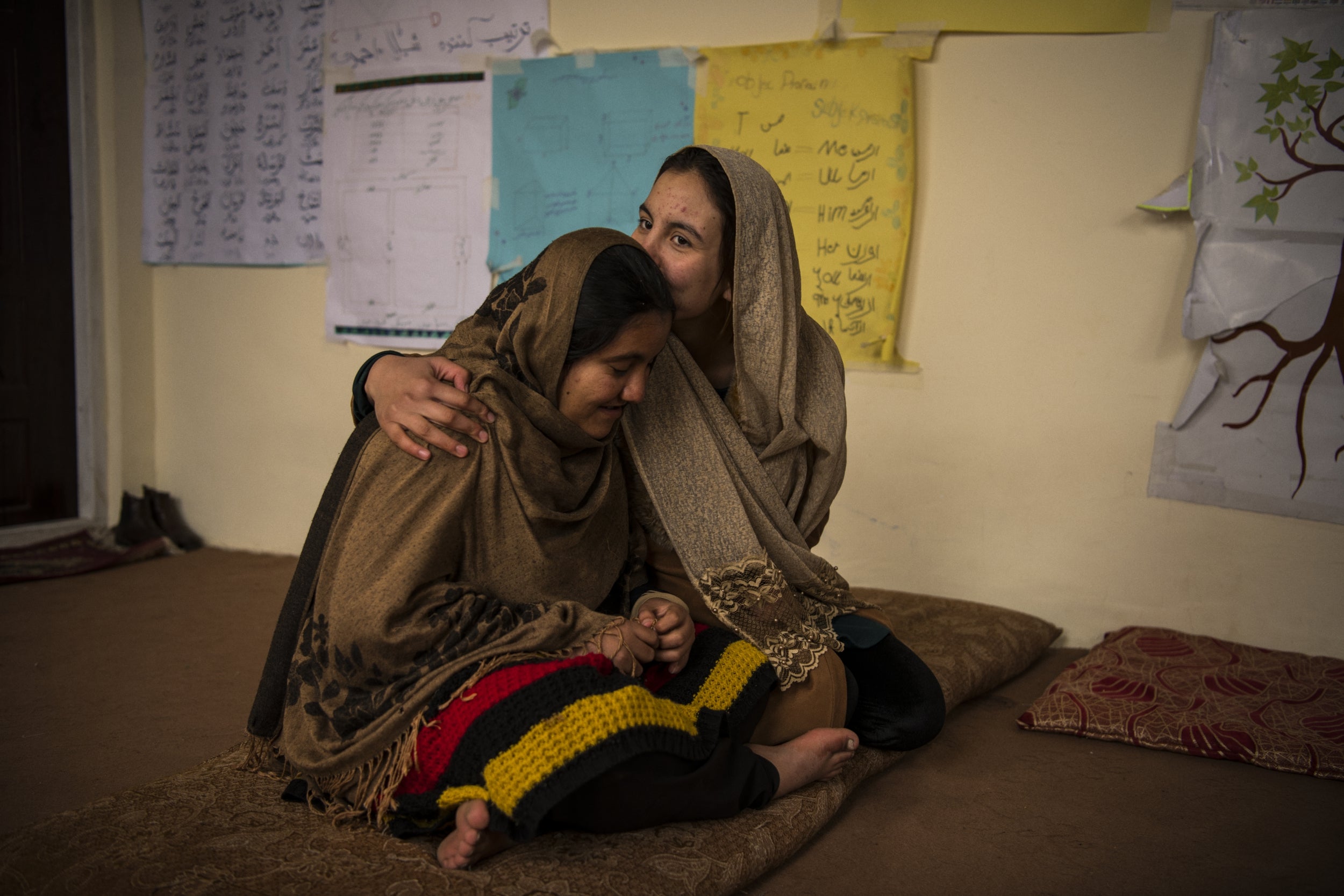
14/20
“She’s older than me but I feel like the older one because I support her. I hope for a better future for me and my sister.”
Andrew Quilty/Save the Children
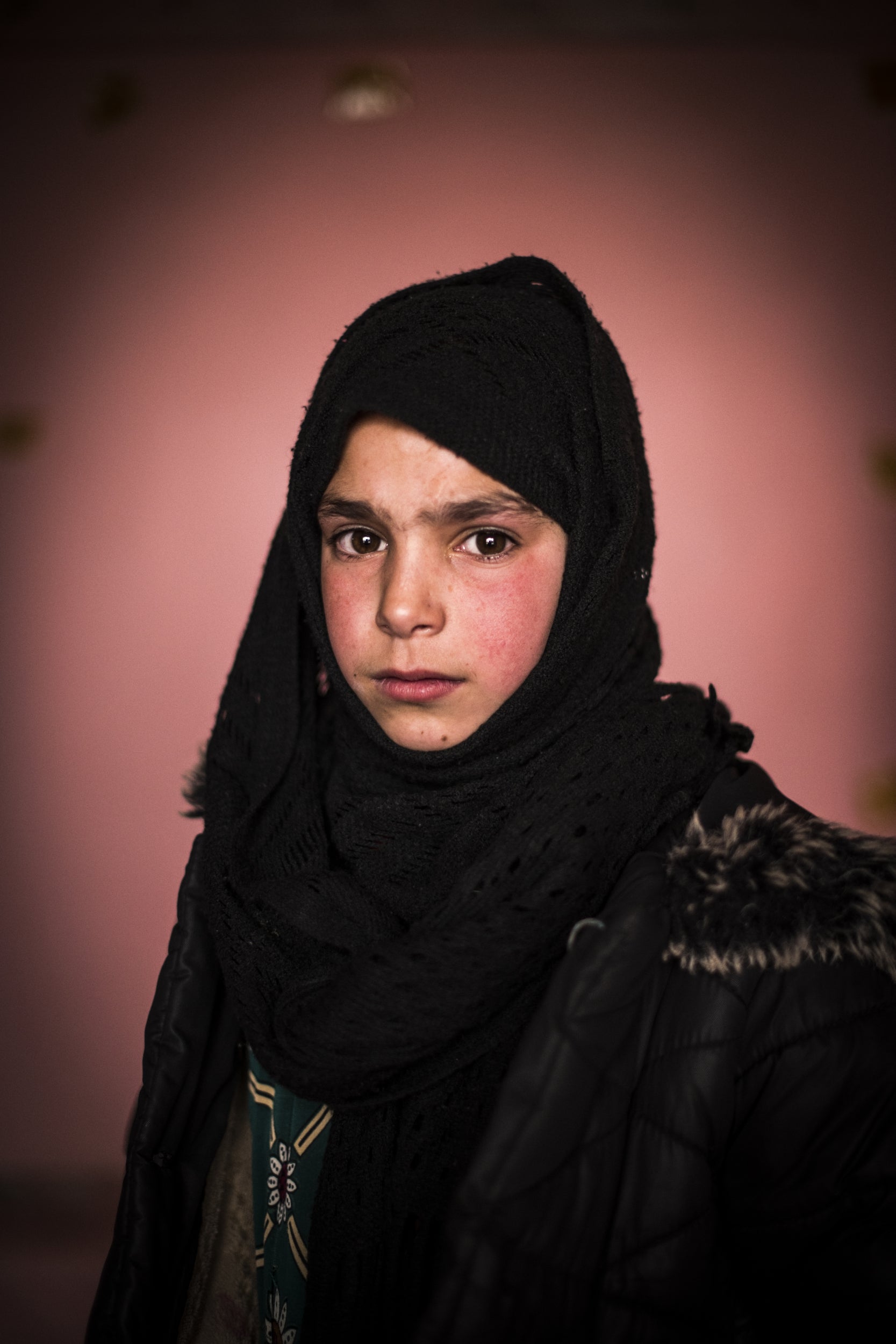
15/20 Khalida*, 10 in a classroom in a village outside Kabul
Two years ago Khalida lost her 18-year old brother when he was killed in an explosion in Kabul. She misses him every day and says the family are still carrying the grief of his loss
Andrew Quilty/Save the Children
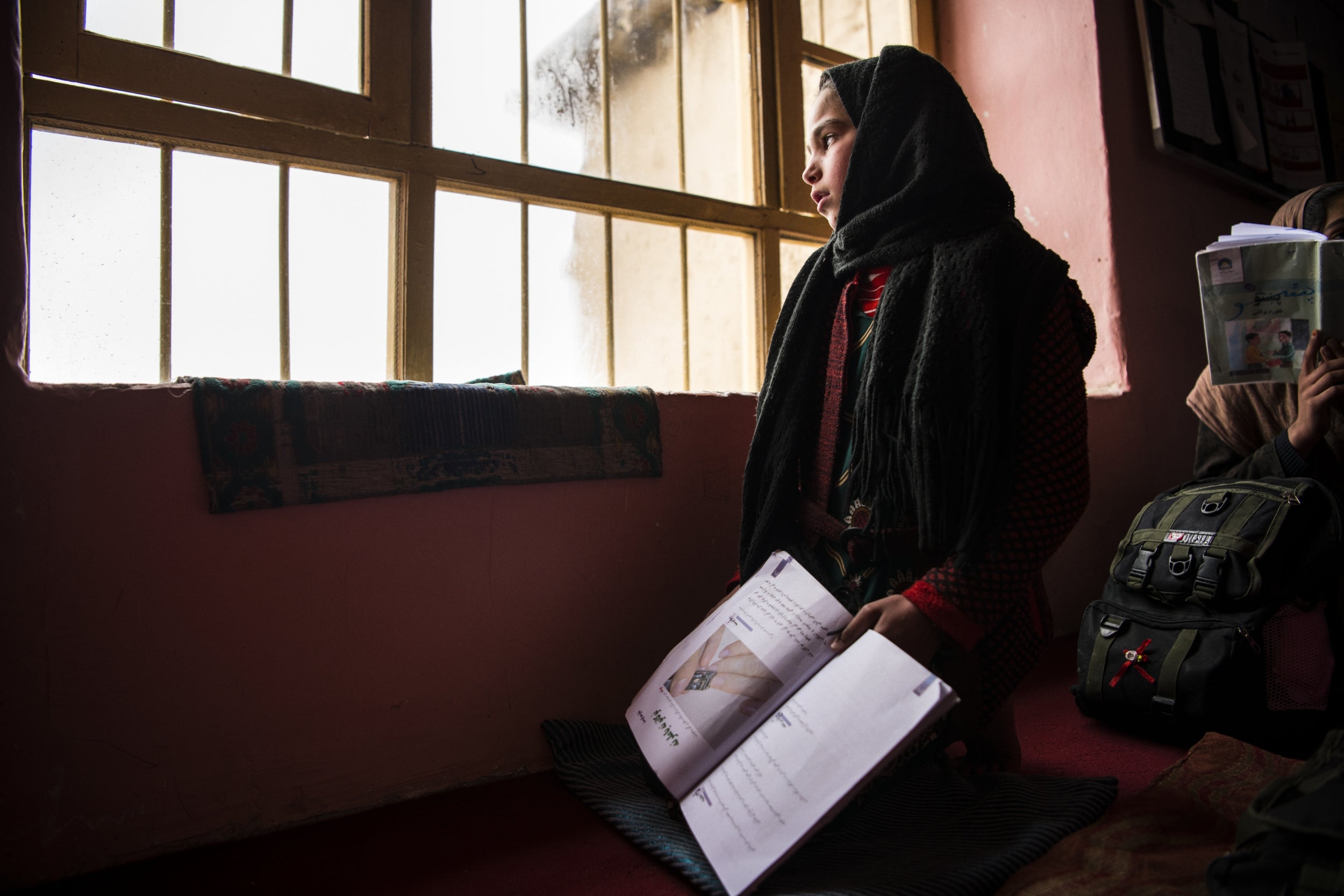
16/20
“Two years ago, my brother was going to Kabul when an explosion happened and he lost his life. We are still carrying the grief and are crying over him. At the time we were happy, everyone was happy. Now no-one is happy in the family. When I remember him, I cry and feel so bad. I hope for peace and that war will stop, and that nobody loses their brother”
Andrew Quilty/Save the Children
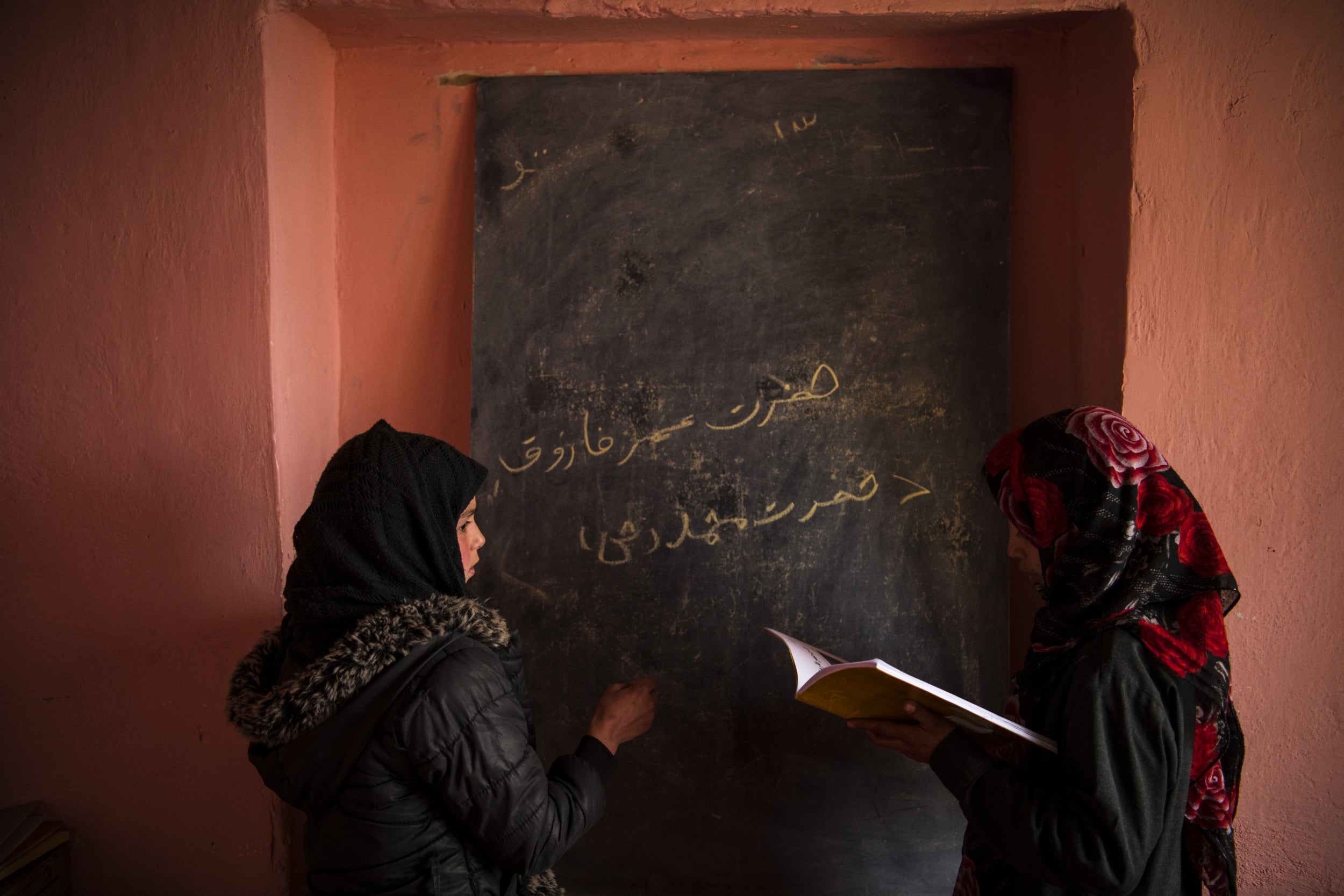
17/20
“I want to get education to become a teacher. I want to teach others who have never been to school”
Andrew Quilty/Save the Children
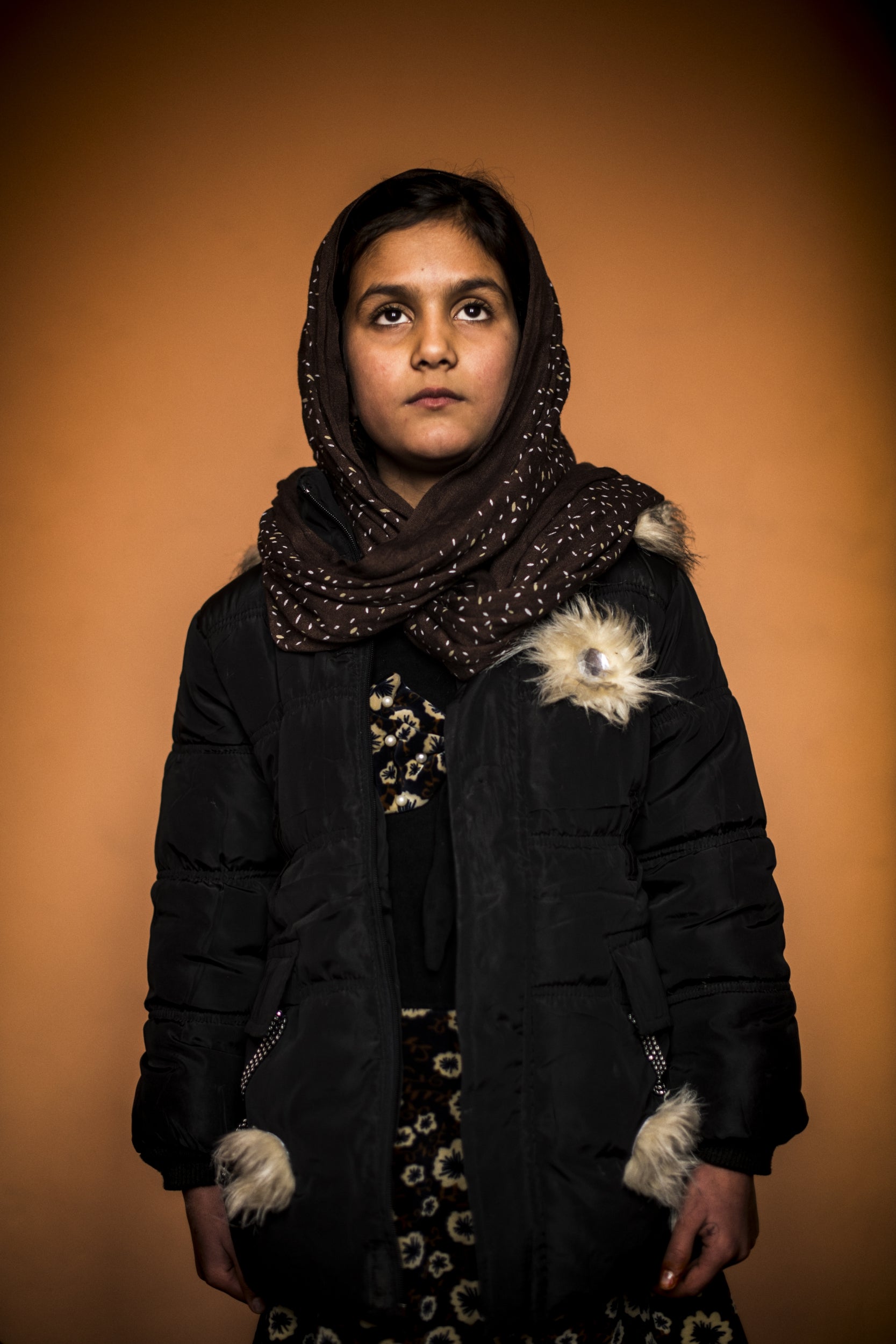
18/20 Sema*,11 at her family home in Kabul
Sema recalls coming home from her aunt’s house and being told that her father had been killed in a suicide attack
Andrew Quilty/Save the Children
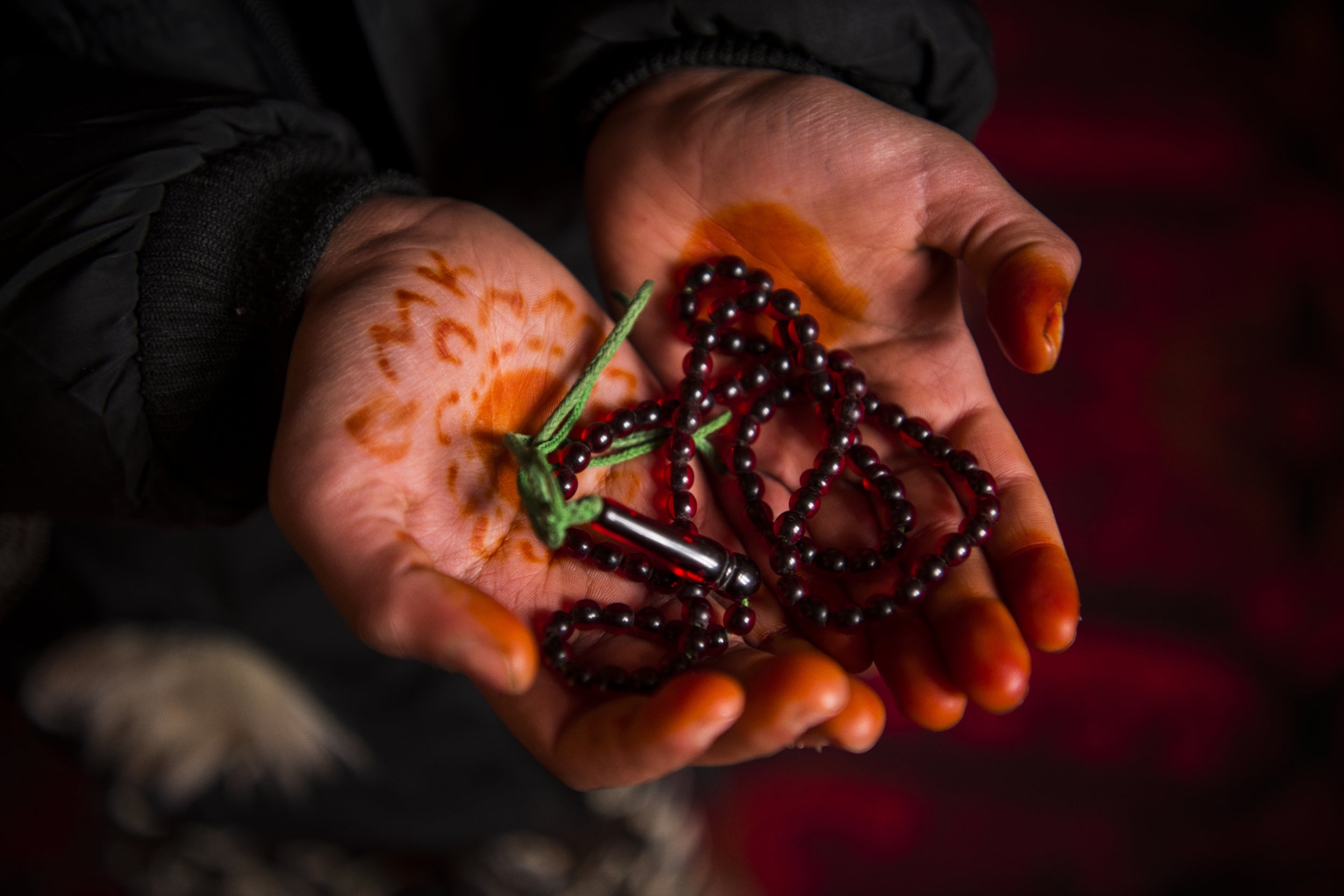
19/20
Sema still thinks about him every second and likes to look at his prayer beads (Tisbeh) to remember him. They hang from the curtain in the family home. She loves school and wants to become a teacher one day. Sema says she wants peace in her country to stop other children losing their fathers. “We still have lots of his belongings, like his car, his clothes, his watch, his shoes. Whenever we see them we cry. He gave us all so much love every moment and he is on our minds. I want for the powerful people around the world to stop the war and bring peace, because I don’t want other children to lose their fathers.”
Andrew Quilty/Save the Children
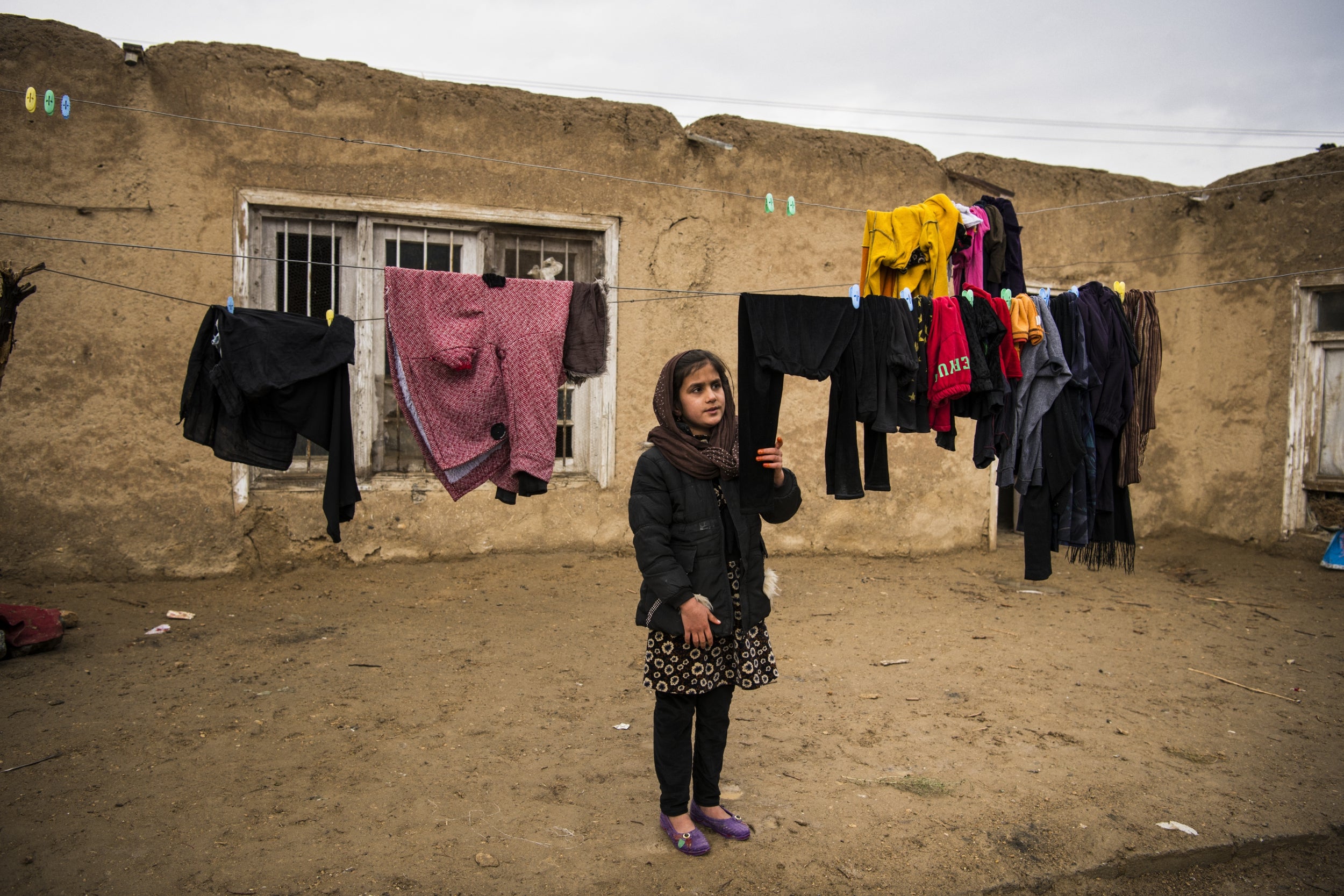
20/20
“I want to become a teacher to serve the country and I don’t want any girls to be illiterate. I want to teach all the girls, so they have access to education.”
*Names have been changed to protect identities
Andrew Quilty/Save the Children

1/20
Andrew Quilty/Save the Children

2/20 Nooria*, 15 in the home her family has lived in for the past two years in Mazar-i Sharif
She was forced to flee her home with her family after their town was attacked by armed groups. Nooria describes a rocket hitting her neighbours home killing many inside. They fled on foot with just the clothes on their backs and she now lives in Mazari Shariff where Save the Children have enrolled her in school and provide vocational training
Andrew Quilty/Save the Children

3/20
Nooria* hopes for a future with no war; “When they attacked our village, the rocket hit our neighbour’s house and they all died. Our house then caught fire and we ran away. My friends who I used to play with – I still don’t know if they are alive or if they are dead.”
Andrew Quilty/Save the Children

4/20
“I’m hoping for a better future, to learn, to support my family and to get them out of this difficult life. And I’m hoping for a future where there is no war.”
Andrew Quilty/Save the Children

5/20 Naveed*, 16 at his family home in Mazar-i Sharif
Naveed lost his leg when he stepped on a mine aged just 8-years-old. He was herding the family’s sheep in the mountains near their home when he triggered a landmine
Andrew Quilty/Save the Children

6/20
After months of medical treatment his right leg was eventually amputated. He received physiotherapy and a prosthetic leg from the International Committee for the Red Cross in Mazar
Andrew Quilty/Save the Children

7/20
Now enrolled in school, Naveed is being given vocational training by Save the Children. “For around a year I felt and dreamt that I still had my leg. But when I woke up and saw, there was no leg. Sometimes I’d feel with my hand to check and find it wasn’t there.”
Andrew Quilty/Save the Children

8/20
“If someone has loses their leg, it does not mean that they have lost their mind.”
Andrew Quilty/Save the Children

9/20
“With the help of our minds we can continue to study, learn, and work to make the future of our families brighter.”
Andrew Quilty/Save the Children

10/20 Naveed and Mahboob*, 55 (Naveed’s father)
Several years ago Neveed’s father, Mahboob, was brutally beaten with rifle butts by armed groups after, he says, he failed to provide food for them while they were stationed in the family’s village. He suffered brain damage which affected the right side of his body, speech and his brain function
Andrew Quilty/Save the Children

11/20 Habiba*, 14, and Arezo*, 15 in a village outside Kabul
Habiba and Arezo were injured with their mother three years ago in a suicide bombing in Kabul. Arezo is still traumatised from what she saw and has become completely withdrawn
Andrew Quilty/Save the Children

12/20
Arezo’s younger sister Habiba cares for her, takes her to lessons and anywhere she wants to go. They are both in school through Save the Children’s ‘Steps towards Afghan girls’ education success’ (STAGES) programme, which helps the most marginalised girls get access to education, stay in school and learn.
Andrew Quilty/Save the Children

13/20
Habiba says: “When I woke up and I opened my eyes I saw lots of bodies and I thought I was not alive any more. It was horrible. I’ll never forget that. Whenever there is a big sound she gets scared because she was traumatised by the sound she heard during the attack. I love my sister, and I help her with her lessons, I take her anywhere.”
Andrew Quilty/Save the Children

14/20
“She’s older than me but I feel like the older one because I support her. I hope for a better future for me and my sister.”
Andrew Quilty/Save the Children

15/20 Khalida*, 10 in a classroom in a village outside Kabul
Two years ago Khalida lost her 18-year old brother when he was killed in an explosion in Kabul. She misses him every day and says the family are still carrying the grief of his loss
Andrew Quilty/Save the Children

16/20
“Two years ago, my brother was going to Kabul when an explosion happened and he lost his life. We are still carrying the grief and are crying over him. At the time we were happy, everyone was happy. Now no-one is happy in the family. When I remember him, I cry and feel so bad. I hope for peace and that war will stop, and that nobody loses their brother”
Andrew Quilty/Save the Children

17/20
“I want to get education to become a teacher. I want to teach others who have never been to school”
Andrew Quilty/Save the Children

18/20 Sema*,11 at her family home in Kabul
Sema recalls coming home from her aunt’s house and being told that her father had been killed in a suicide attack
Andrew Quilty/Save the Children

19/20
Sema still thinks about him every second and likes to look at his prayer beads (Tisbeh) to remember him. They hang from the curtain in the family home. She loves school and wants to become a teacher one day. Sema says she wants peace in her country to stop other children losing their fathers. “We still have lots of his belongings, like his car, his clothes, his watch, his shoes. Whenever we see them we cry. He gave us all so much love every moment and he is on our minds. I want for the powerful people around the world to stop the war and bring peace, because I don’t want other children to lose their fathers.”
Andrew Quilty/Save the Children

20/20
“I want to become a teacher to serve the country and I don’t want any girls to be illiterate. I want to teach all the girls, so they have access to education.”
*Names have been changed to protect identities
Andrew Quilty/Save the Children
Two sources close to the matter told Reuters on Wednesday that the Taliban’s top leadership had now agreed to implement a 10-day ceasefire with US troops once a deal was signed in Doha, and to “reduce” attacks against the Afghan government.
A senior Taliban commander said: “The US wanted us to announce a ceasefire during the peace talks which we had rejected. Our shura [council] has agreed to a ceasefire the day the peace accord is signed.”
Once an agreement is in place, the Taliban and Afghan government could meet face to face in Germany, said the commander. Previously, the Taliban had refused to engage in talks with the Afghan government.
The US team in Doha had demanded a ceasefire “which we had declined due to some issues,” the Taliban commander said. “Now most of our reservations have been addressed.” Another source close to the talks confirmed the commander’s version of events.
A signing date has not been fixed, but the Taliban commander said he expected it to be “very soon.”
Only the best news in your inbox
Both sources asked not to be named due to the sensitivity of the matter.
A US State Department spokesperson declined to comment and the Pentagon referred queries to the State Department.
An Afghan presidency spokesman said a ceasefire was the only way to achieve sustainable and dignified peace. “Any plan which proposes a ceasefire as a basic step will be acceptable for the government,” Sediqi Sediqqi tweeted on Friday.
Violence in Afghanistan rose after the breakdown of talks in September.
The Taliban’s readiness to reduce violence revives odds of the peace process moving forward before the militant group launches what is usually an annual spring offensive around early April.
Reuters
Source: World Politics - www.independent.co.uk



